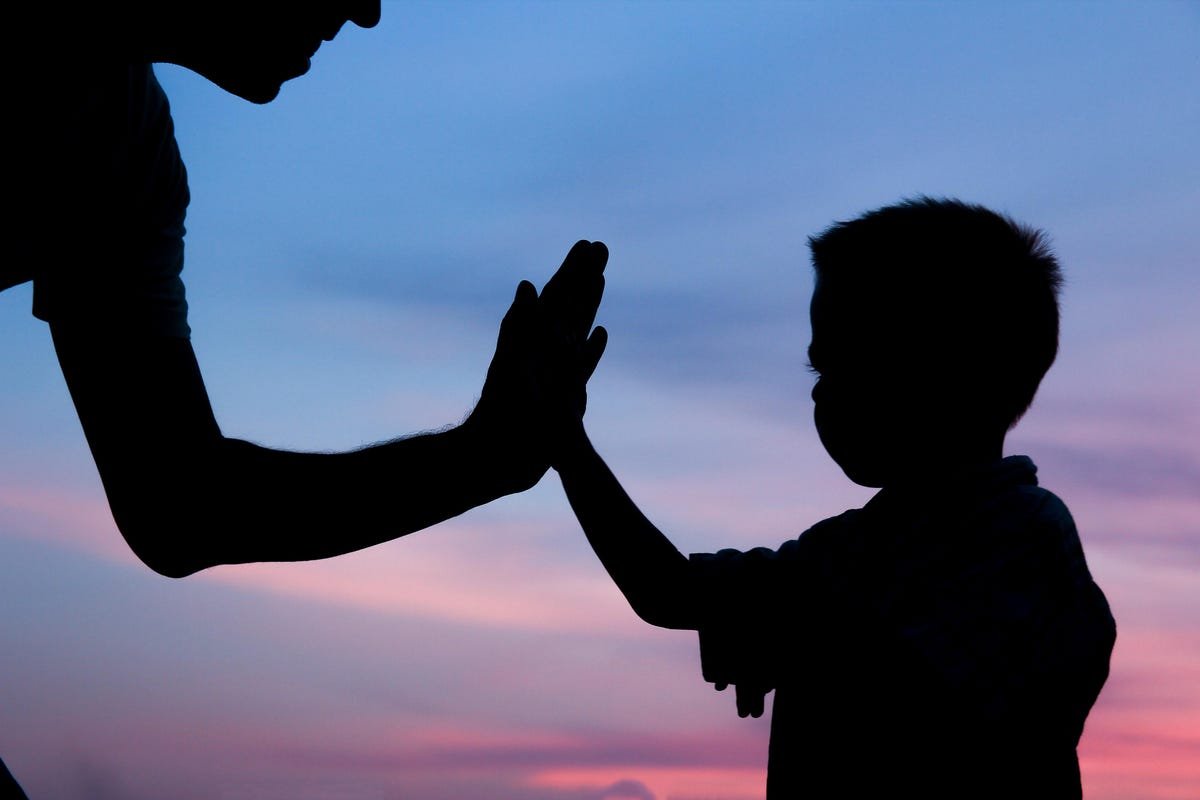I fully understand that choosing me over an established market leader is risky. The fear of making a poor decision, looking bad in front of your boss, and facing repercussions because of your choice are all significant factors in the business-to-business decision-making process. This is why market leaders hold such an advantage: they represent the safe option. You can confidently tell your boss that you considered all alternatives but chose "X" because of their reputable background with prominent companies.
I think challenging this established procedure necessitates a thoughtful approach. While established market leaders are often seen as the safe choice due to their proven track record, this perception can stifle innovation and limit opportunities for new, potentially superior solutions. By daring to choose a less conventional option, you not only demonstrate confidence in your decision-making abilities but also open the door to unique advantages that the market leader may not provide. Embracing this challenge can lead to significant benefits and differentiation in a competitive landscape.
Aspirational choices
Businesses tend to become less risk-averse when they are confronted with a crisis, as the saying goes, 'necessity is the mother of invention.' Consumers also develop a narrative explaining why they are adopting new behaviours. Periods of disruption, although they introduce variance and instability in the economy, can potentially be healthy in the long-term. I think that the obstacles to technology adoption primarily stem from psychological hurdles, and this is why I find marketing fascinating, as it poses the challenge of converting people in the first place.
““When you have to make a choice and don’t make it, that is in itself a choice.””
Reconciling different goals
Image: Aaron Lynn ©
Goals: What’s best for the customer? What’s best for the local community? What’s best for the planet? These are all noble causes, but often teams can’t come to an agreement on these goals. It’s not uncommon for teams within organisations to have conflicting or even opposing goals where the only common ground is they all work for the organisation, and they all want it to be successful. Therefore, they turn to a question that much more straightforward, much easier to measure and far more sinister: What’s best for the organisation?
Whenever we ask that question it’s all over, as I think the primary focus shifts to what's best for the organisation in terms of profitability, which can sometimes lead to decisions that prioritise financial gain over other considerations such as employee well-being, environmental impact, or ethical concerns. Organisations today demand constant scale and growth, and when push comes to shove, we have to be able to support our family and we all want stability in our lives. When the decision is about feeding our families or stretching the truth, I think most people are going to choose the latter.
Everyone wants to be sustainable
c/o Getty Images
Why are we making more and more?
I think the biggest thing we can do is reduce consumption and reduce production. The last few years have been pretty hard for everyone in retail, let alone those like us who are trying to change the fashion paradigm to sustainability. We all like to think of ourselves as leading through the idea of offering modern people comfortable yet empowering designs which simplify their clothing choices during their busy lives. It’s hard to convince people to buy less on a promise it will last longer. In order to succeed in the current economic climate, businesses must move towards a more circular, ethical, and holistic way of operating. The big question is how retailers will respond to the lower demand and higher cost environment that we expect will persist for the rest of this year.
““Just do less: Buy less, consume less, produce less. That’s a really hard line to walk when you’re trying to run a business and you’re measuring your success by how much you sell.” ”
Accepting responsibility
It’s always less desirable to give nuanced, complex, or sophisticated answers which require input from multiple parts, be it society or yourself. People have always wanted simple answers. Whenever anything happens people need to know whose fault it is and if possible, embody blame into one person, for example, immigrants, the European Union, it’s always somebody else. “It’s never us!” because people love to have a solution that is both not nuanced, not sophisticated and not our fault. Acknowledging the effects of your behaviour and choices will open you up to new experiences, improves your mental health which in turn, allows you to build a sense of control over your life. I think taking responsibility for your own actions is how you’ll gain a deep understanding of your true self.
It’s a choice
Maslow’s “Hierarchy of Needs” is our satisfaction chart which makes us feel whole and accomplished as a human being. There are five levels in Maslow's pyramid, from the bottom of the hierarchy upwards, the needs are:
- Physiological (food and clothing),
- Safety (security),
- Love and belonging needs (friendship)
- Esteem,
- Self-actualisation.
Nowadays, we are controlled by the media, especially social media where we are constantly following other people’s opinions. We really need to learn how to think free and start loving and respecting each other. Patience is to let the season do their work as you can’t hurry the spring, you can’t rush the summer, and you can’t shorten the winter. You just need to have patience with the unfolding of things from the beginning to reality, from nothing to something. I think that it’s all about humanity. We can make our own reality, it’s a choice.
The choice is yours
Optimism is a choice.
Happiness is a choice.
Giving back is a choice.
Forgiveness is a choice.
Being honest is a choice.
Spoken words are choice.
Teaching others is a choice.
Showing gratitude is a choice.
Respecting others is a choice.
Living a recommendable life is a choice.
It's worth noting
You did not choose your:
1. Birthplace
2. Skin colour
3. Birth parents
4. Birth gender
5. Birth language
6. Birth name
7. Ethnicity
8. Born abilities
You can choose to be:
1. Humble and kind
2. Generous
3. Gracefully honest
4. Grateful
5. Respectful
6. Optimistic
7. Unselfish
8. Self-aware
We begin with a choice
“To be old and wise, you must have been young and stupid.” I think that as soon as you understand that nobody owes you anything and you don’t have the right to be heard, seen, or appreciated, it makes it so much easier to let go of all of that. This action will free up all of your brain to do the things that you said you wanted to do in the first place.
It’s an epiphany when you realise that no one owes me anything as when I start believing that you owe me something, then I have signed up for that outcome and the toxic cycle of betting on the outcome. I have gratitude for the freedom that this realisation has given me, and I refuse to dance to the beat of someone else’s drum. I am grateful to those people who have given me the opportunity to do my work.
“The years teach much which the days never knew.”
Talk is cheap
What are the changes we seek to make, in order to become the type of person we want to be?
There are a series of choices we have to make, and I think these choices are easier if we have habits. Habits get us results; goals are results! Having a goal that you are going to for example, go to lose weight does not tell me anything. Whereas having the goal to go to the gym every other day for 6 months and you are going to get as fit as a fiddle is a way more specific goal and is totally in your control.
The choice is yours
You did not choose your:
1. Birthplace
2. Skin colour
3. Birth parents
4. Birth gender
5. Birth language
6. Birth name
7. Ethnicity
8. Born abilities
You can always choose to be:
1. Honest
2. Generous
3. Kind
4. Grateful
5. Respectful
6. Optimistic
7. Humble
8. Self-aware
9. Faithful
10. Happy
Stop and smell the roses
Happiness is an inside job, you really should not assign anyone else that much power over your life. Most people operate on autopilot, doing the same things today that didn’t work yesterday. They rarely stop to measure the impact of their actions on themselves and others, and how those actions affect their total well-being. As you stop to literally smell the roses, you start to realise other areas in your life where you could slow down a little to enjoy the beauty that surrounds you.
Many people wait for something to happen or someone to help them live their best lives. They expect others to make them happy and they think they have lost the ability to improve their lives. I think there are three components of happiness - something to do, someone to love, and something to look forward to. Think about it, if we have useful work, sustaining relationships, and the promise of pleasure, it is hard to be unhappy. And I use the term “work” to encompass any activity, paid or unpaid, that gives us a feeling of personal significance. If your daily actions and choices are making you unhappy, contact me via e-mail and let's arrange a meeting.













